In the vast ocean of language, synonyms are the lifeboats that help us navigate the treacherous waters of repetition. From the simple to the sophisticated, these interchangeable words offer a lifeline to writers, speakers, and anyone seeking to expand their vocabulary.
The Paradox of Synonyms
The very existence of synonyms poses a paradoxical challenge. On one hand, they provide a wealth of options, enabling us to express ourselves precisely and avoid monotony. On the other hand, the sheer abundance of synonyms can be overwhelming, leaving us uncertain about which word to choose.
The Purpose of Synonyms
Synonyms serve a crucial purpose in language: they allow us to convey the same idea in different ways, enhancing the clarity, variety, and impact of our communication. By utilizing synonyms, we can tailor our language to specific audiences, contexts, and tones, ensuring that our words resonate with our intended readers or listeners.
In summary, synonyms are the cornerstone of a rich and diverse vocabulary, empowering us to express ourselves with precision, flair, and effectiveness.

Source: eslforums.com
Synonyms: A Personal Perspective
I vividly recall my first encounter with the power of synonyms. As a young writer, I struggled to find the right words to convey the nuances of a particular emotion. Desperate for inspiration, I turned to my trusty thesaurus. To my astonishment, an entire constellation of synonyms emerged, each offering a slightly different shade of meaning.
From that moment on, I became an ardent advocate for synonyms. They have enabled me to transform mundane sentences into vibrant prose, to inject freshness into my writing, and to convey subtle emotions with unwavering accuracy.
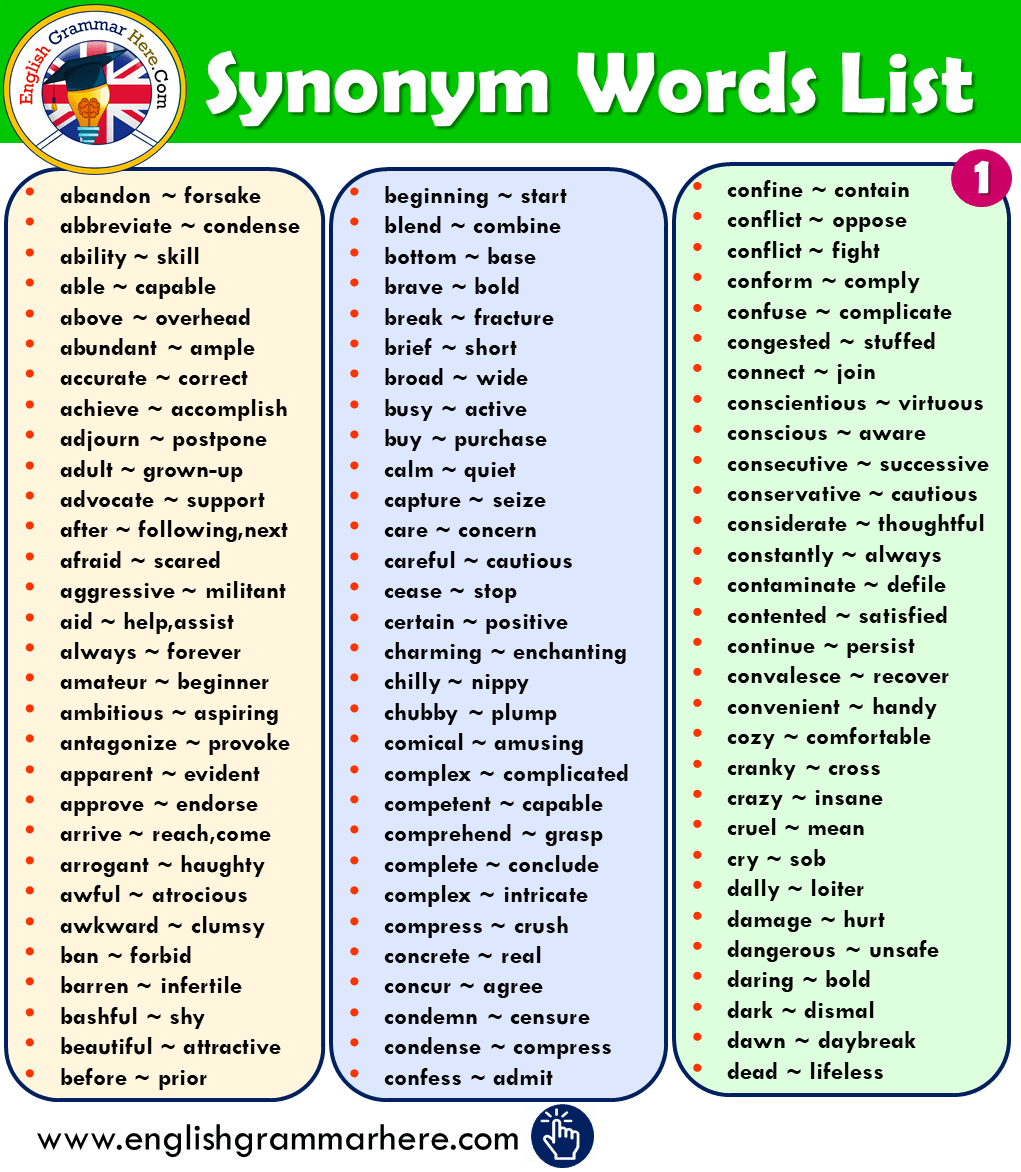
Source: englishgrammarhere.com
Synonyms: A Tapestry of History and Myth
The history of synonyms is as rich and diverse as the words themselves. From the ancient Greek philosophers who debated the nature of language to the lexicographers of today, synonyms have been a subject of fascination and study.
Myths and legends have also woven themselves into the tapestry of synonyms. In Greek mythology, the goddess Eris threw a golden apple into a banquet, bearing the inscription “For the Fairest.” This act sparked a fierce competition among Hera, Athena, and Aphrodite, who each claimed to be the most beautiful. The apple was eventually awarded to Aphrodite, and the term “apple of discord” became synonymous with anything that causes strife or rivalry.
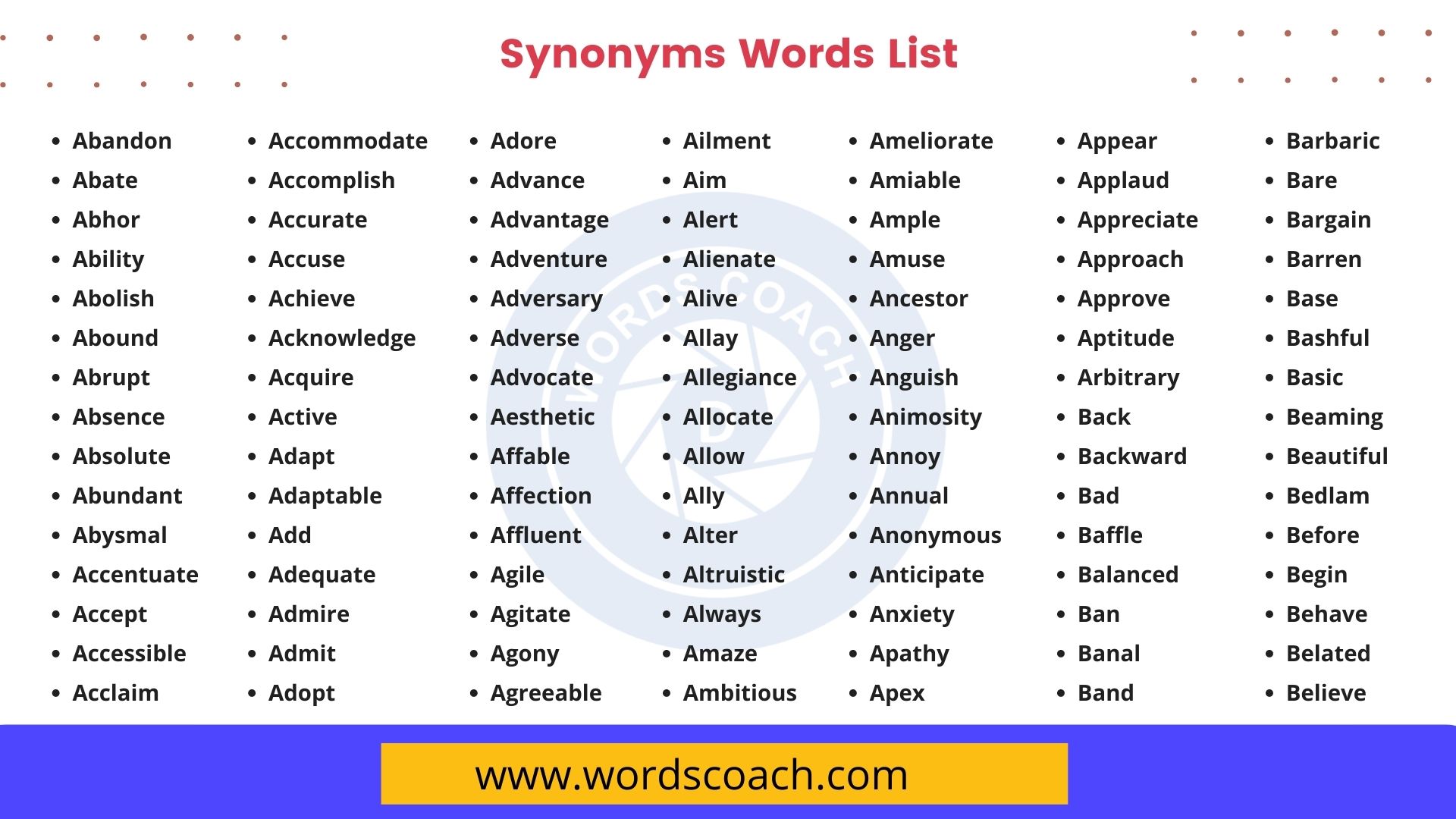
Source: www.wordscoach.com
Synonyms: Unveiling Hidden Secrets
Beyond their practical utility, synonyms also hold hidden secrets. They can reveal cultural values, linguistic evolution, and even our own subconscious biases.
For instance, the word “home” has numerous synonyms, including “house,” “residence,” “dwelling,” and “abode.” Each of these terms carries its own subtle connotations. “House” suggests a physical structure, while “abode” evokes a sense of permanence and belonging. By understanding the nuances of such synonyms, we gain a deeper appreciation for the richness and complexity of language.
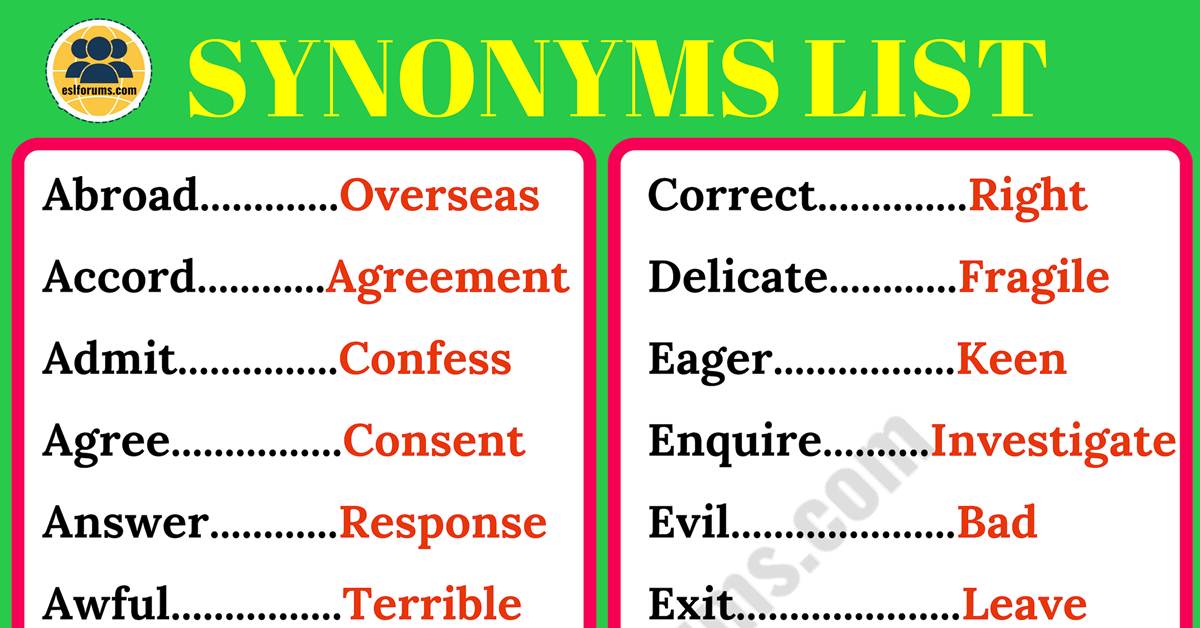
Source: eslforums.com
Synonyms: Recommendations for Expansion
Embracing synonyms is a journey of linguistic growth. Here are some recommendations to expand your vocabulary and master the art of synonyms:
- Read widely and attentively. Pay attention to how skilled writers use synonyms to enhance their work.
- Consult a thesaurus regularly. Explore the vast array of synonyms available for each word.
- Experiment with different synonyms in your own writing. Don’t be afraid to step out of your comfort zone and try new words.
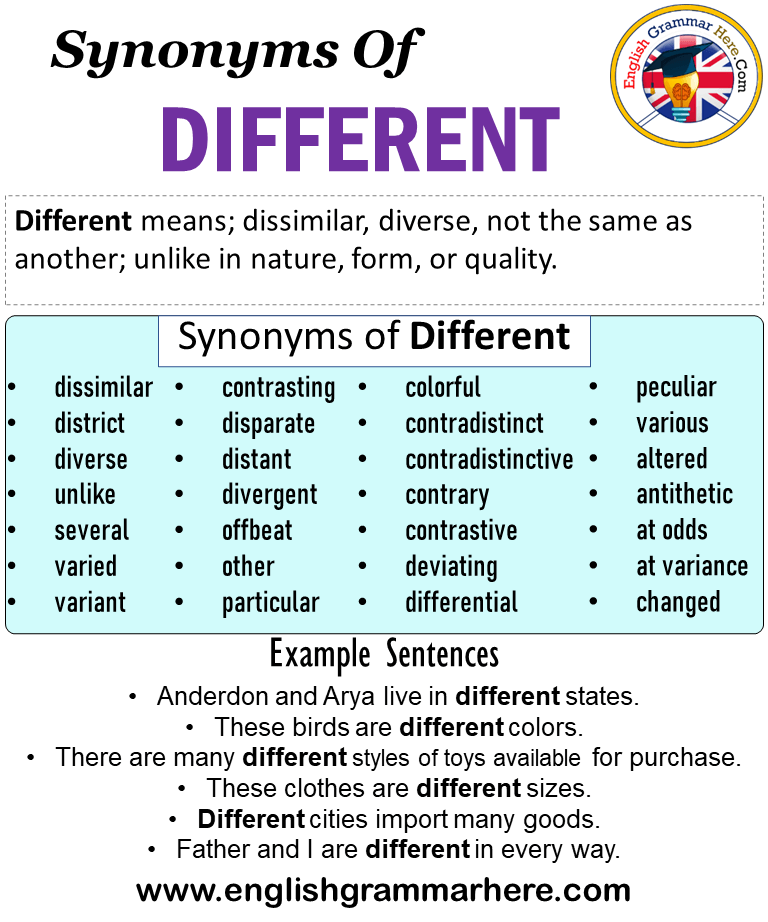
Source: englishgrammarhere.com
Synonyms: Delving into the Details
Synonyms can be categorized into various types, each serving a specific purpose:
- Absolute synonyms are words that have exactly the same meaning in all contexts, such as “big” and “large.”
- Near synonyms have similar meanings but may differ in subtle ways, such as “happy” and “joyful.”
- Hyponyms are words that describe a specific type of a more general word, such as “dog” is a hyponym of “animal.”

Source: 7esl.com
Synonyms: Tips and Techniques
Mastering synonyms requires practice and dedication. Here are some tips to help you along the way:
- Use a thesaurus to find synonyms, but don’t rely solely on it. Consider the context and choose the synonym that best fits your intended meaning.
- Pay attention to the connotations of synonyms. Some synonyms may have positive or negative associations, so choose carefully.
- Avoid using too many synonyms in a short space. This can make your writing sound repetitive and unnatural.
Source: www.facebook.com
Synonyms: Advancing Your Skills
To enhance your mastery of synonyms, consider the following exercises:
- Practice using synonyms in your daily conversations and writing.
- Play word games that involve synonyms, such as Scrabble or crossword puzzles.
- Challenge yourself to use a certain number of synonyms in a writing assignment or speech.

Source: www.youtube.com
Fun Facts About Synonyms
Did you know these fascinating facts about synonyms?
- The word “synonym” comes from the Greek words “syn,” meaning “with,” and “onyma,” meaning “name.”
- The English language has approximately 250,000 words, and many of them have multiple synonyms.
- Some words have dozens or even hundreds of synonyms. For example, the word “love” has over 400 synonyms in the English language.
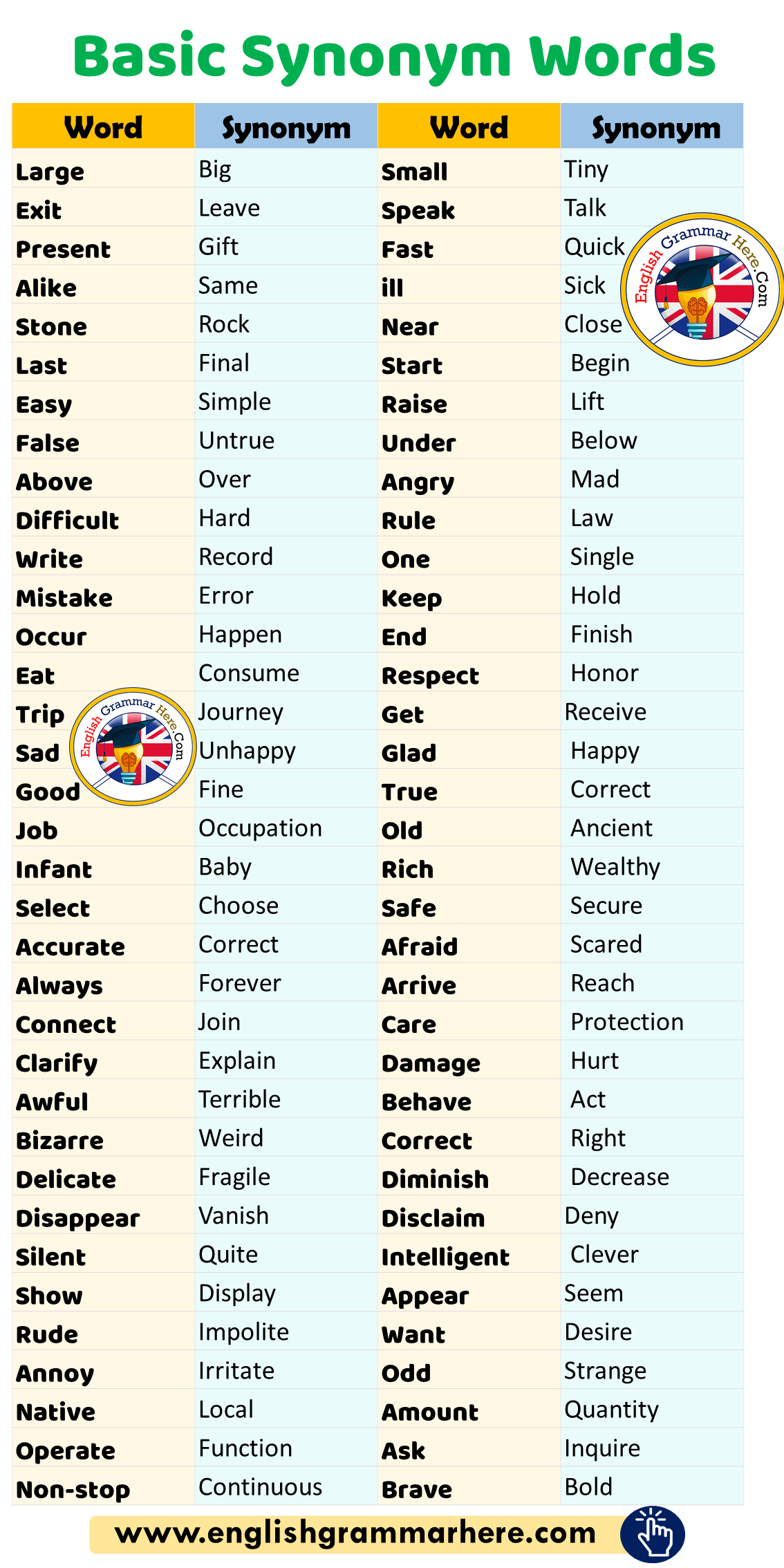
Source: englishgrammarhere.com
Synonyms: A Guide to Effective Use
Mastering synonyms empowers you to elevate your communication skills and express yourself with precision and eloquence. Whether you’re a writer, a speaker, or simply someone who seeks to expand their linguistic horizons, embracing synonyms is the key to unlocking a world of expression.
Remember, synonyms are not just interchangeable words – they are the building blocks of rich and nuanced communication. By understanding their power and using them effectively, you can transform your language into a vibrant tapestry of words that will captivate and inspire.
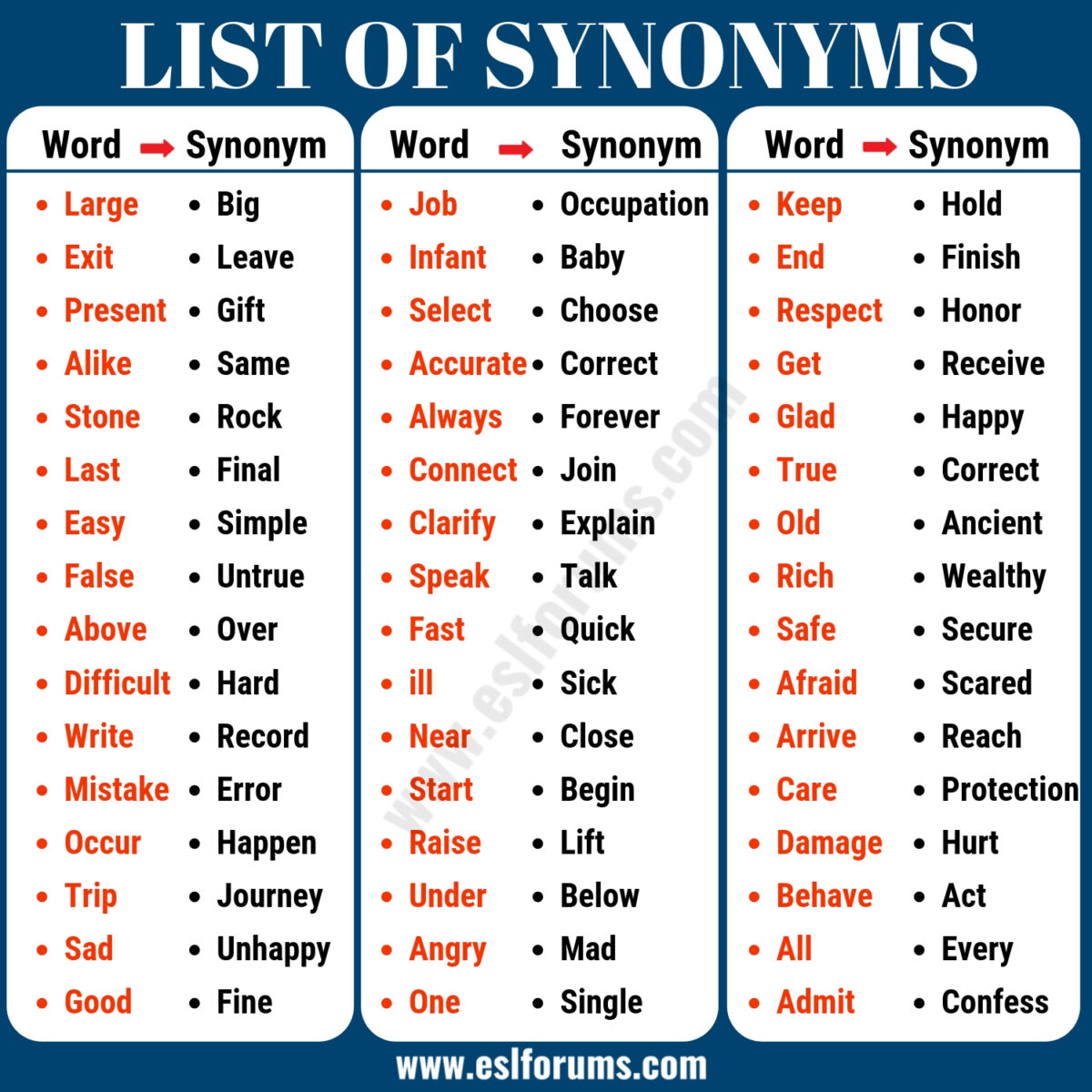
Source: eslforums.com
Conclusion of Synonyms
Synonyms are the unsung heroes of language, enabling us to communicate with clarity, precision, and style. They are a treasure trove of linguistic riches, empowering us to express ourselves with the finesse and eloquence that befits the human spirit. Embrace the power of synonyms, and let your words soar to new heights of expression.
